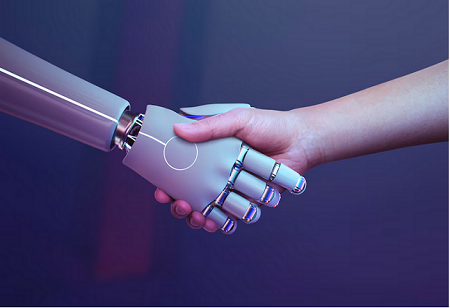
South Korean food company Pulmuone has entered into a collaboration with ABB Robotics from Switzerland to explore AI based automation for developing lab grown sea food. Under the scope of the agreement, ABB and Pulmuone will collaborate on several key areas of innovation in the development and future mass production of cell-cultured seafood. South Korea is swiftly ascending as a dominant force in the realm of automation. Its ascent is fueled by a robust technological foundation, substantial research and development expenditures, and well-crafted government strategies. These elements are helping the nation to attain a leading position in the Fourth Industrial Revolution which is being marked by the convergence of technologies that are creating correlations among the physical, digital, and biological domains.
“We are pleased to collaborate with Pulmuone and provide ABB’s robotics expertise and experience in both the food industry and life sciences. The ability of robots to free skilled lab workers from carrying out dull, repetitive tasks is a key advantage in an economy like South Korea, with a tight labor market. In addition the precision and repeatability offered by robots have major benefits in food application”, mentioned Craig McDonnell, Managing Director, Business Line Industries, ABB Robotics.
There are several factors that are contributing to the growth of automation in South Korea and making it one of the advanced nations that is making use of modern technology innovations.
Innovation and Technology Infrastructure
The formidable technological framework of South Korea is significantly contributing to its progress in the automation sector. Being among the nations having the fastest internet speeds and widespread 5G connectivity South Korea is executing flawless functionality of automated solutions and systems powered by IoT technologies. Globally renowned conglomerates functioning in South Korea like Samsung, LG, and Hyundai are making tremendous breakthroughs in robotics, artificial intelligence (AI), and smart manufacturing systems.
To give an example, Samsung is putting heavy investments in AI systems and robotics to redefine its manufacturing techniques and expand the range of products. For instance, Samsung's washing machines, equipped with AI, are designed to adjust water and detergent levels by assessing the laundry's weight and level of soiling.
“Early commercialization of 5G networks allowed local operators to analyze and understand user behavior and introduce OTT video, AR/VR and live-streaming services. Additional services and applications including the metaverse and generative AI have emerged and changed the country’s cultural landscape. In the case of private networks, 5G is also reshaping the industrial landscape across various verticals”, Woojune Kim, Head of Network Business, Samsung.
Government Policies and Initiatives
South Korea's government is actively fostering the growth of automation and intelligent tech through various programs. The "Manufacturing Innovation Strategy 3.0" is set to revolutionize conventional manufacturing into smart manufacturing facilities by combination of cutting-edge technologies such as AI, IoT, and big data. Added to this, the rolling out of the "Intelligent Robot Development and Supply Promotion Act" is also offering benefits to enterprises that are investing in robotic and automation technologies.
To delve a little deeper, the Intelligent Robot Development and Supply Promotion Act is encouraging diverse industries to adopt cutting edge technologies for the purpose of manufacturing and process automation. The government is also offering tax incentives and subsidies to business entities that are adopting robotics technologies.
“The South Korean government has implemented several initiatives to bolster the AI sector. In 2019, the government unveiled its AI National Strategy, which outlines a comprehensive plan to make South Korea a leading AI powerhouse by 2030. The strategy focuses on three main pillars: strengthening AI infrastructure, fostering AI talent, and promoting the ethical use of AI”, mentioned Janith Dissanayake, Group CTO, NEWNOP.
Research and Development Initiatives
Leadership in the sectors of robotics and automation of South Korea is being driven by the committed R&D initiatives. We can see organizations and government departments focusing on the development of advanced automation processes through cutting edge technologies by investing substantial portions of the GDP. In 2020, it was reported that South Korea invested more than 4.5% of its GDP into R&D, marking it as one of the highest in this segment. This strategic funding is instrumental in driving forward innovation and the rapid progression of sophisticated technologies in automation.
In this regard, the Korea Advanced Institute of Science and Technology (KAIST) is one of the notable organizations in South Korea that is performing automation research for developing advanced robots and AI systems. KAIST's HUBO robot has been recognized for its humanoid capabilities, including walking, running, and performing complex tasks.
"Korea is one of four countries in the world with a hyperscale AI model. We aim to create services that will lead the global market by targeting Korea's specialized fields such as law and medicine", mentioned Lee Jong-ho, Science and ICT Minister, South Korea.
South Korea rising as a leader in automation is testimony to its technological prowess, strategic government initiatives, and significant investments in innovation. By welcoming automation across sectors, the country is not only enhancing its industrial capabilities but also setting an example for other nations who plan to thrive in the era of the Fourth Industrial Revolution.

